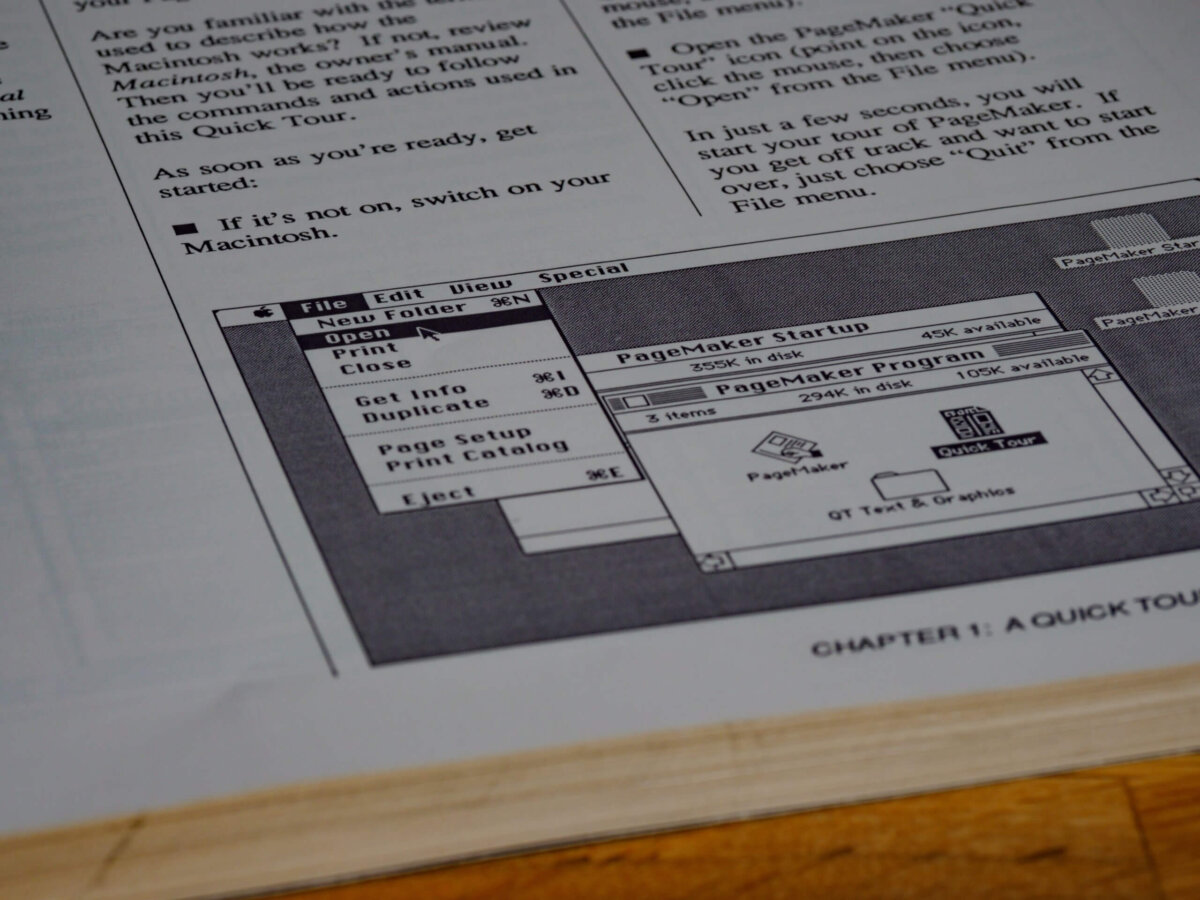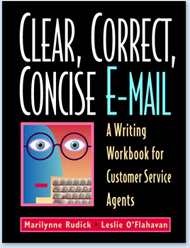During a live chat session with a customer service agent, I tried to cancel my ancient EarthLink e-mail account. (I know – having ever had an EarthLink e-mail account makes me about as cool as orthodontic headgear, but in the early part of the 21st century, I had my reasons …)
The customer service agent, “Jane D,” did a good job. She let me know that I could not cancel my account during the chat session. When I explained that I wanted to cancel in writing, she provided EarthLink’s fax number and told me what to include in my fax. I got one-and-done, actionable service.
But Jane D’s diction was odd! Her unusual phrasings include:
- please may I know the reason as to why you are looking to cancel
- at chat we are limited to give the information
- one of the associates will put in the best effort to help you do the needful today
I suspect English is not Jane D’s first language, and I have to admire her for writing so smoothly in a second language. But I think that her less-than-complete grasp on American English phrasing erodes the overall quality of the chat. Read on…
Transcript of EarthLink Live Chat
Welcome to EarthLink LiveChat. Your chat session will begin in approximately 0 minutes. Feel free to begin typing your question.
- “Jane D” says: Thank you for contacting EarthLink LiveChat, how may I help you today?
- LMO@earthlink.net: I want to cancel my earthlink account
- Jane D: I am sorry to know that you wish to cancel the account.
- Jane D: Please may I know the reason as to why you are looking to cancel the account with EarthLink?
- LMO@earthlink.net: I don’t need the account any more
- LMO@earthlink.net: Please confirm that you will close out the account and that I will not be billed for service after today, October 27
- Jane D: That is Okay, I understood.
- Jane D: I will certainly help you in this regard.
- Jane D: Here I would like to inform you that, At chat we are limited to give the information but the cancellation involves your verbal agreement so please contact us on the voice number 888 327 8454 (working hours 7am – midnight EST M-F or 8am – 10pm EST Sat/Sun) and one of the associates will put in the best effort to help you do the needful today.
- LMO@earthlink.net: I don’t want to call in. I want to cancel my account in writing.
- Jane D: As per our cancellation policy, I cannot cancel your account through Live Chat. If you wish to cancel your account, please send a request by Fax to 404-795-1034, including your account number,email address, your contact information and the reason of the cancellation.
- LMO@earthlink.net: OK, I will do that
- Jane D: Thank you.
- Jane D: Is there anything else I can assist you with?
- LMO@earthlink.net: No, thank you
- Jane D: Thank you for using EarthLink Live Chat. Should you need further assistance, please contact us again.
- Jane D: You have a wonderful day ahead!
What’s your opinion? Did Jane D’s chat “do the needful” or should EarthLink staff chat with customer service agents whose writing is clear, correct, concise, and in touch with American English? I’m eager to hear your thoughts, so post a comment here.







Jane D’s chat did not “do the needful” because she didn’t solve your problem, and she took too long to communicate that to you, the customer.
First, let me make it clear that chat agents don’t necessarily have to solve the problem completely if they can at least get the ball rolling for you. For instance, Jane D. could have transferred you to a phone rep using click to call or some similar functionality that would schedule a callback. While not optimal, you’d at least feel like you were farther along than when you first started.
The second problem, which I see a lot when call centers are involved in taking chats, is that the language is way too formal and lengthy. In most cases, customers like yourself just want to get from point A to point B as quickly as possible.
It shouldn’t take several chat messages just to get to the point where Jane D. breaks the bad news to you that she is unable to help. Instead, I always suggest a more direct approach.
Jane D: “Thank you for contacting Earthlink Live Chat, how may I help you today?”
LMO: “I want to cancel my account”
Jane D: “I’m sorry you want to cancel, but we do require verbal authorization. The quickest way to accomplish this is to call 1-888-xxx-yyyy and press 4, or send a Fax to 888-yyy-xxxx.”
Done!
Finally, the last thing I noticed is that Jane D. first reassured you that she *could* help, and then she immediately said she *can’t* help. I believe this double talk briefly sets the expectation that the agent can help, which gets the customer’s hopes up, only to then set the customer up for a “crash” when she breaks the disappointing news that she not only cannot help, but 4 minutes of your time was just wasted on a question that could have been answered in less than 30 seconds.
Lastly, I want to address the issue of non-native English speakers. I work with engineers in India, and “do the needful” is a very common phrase there. It’s not used because they’re non-native English speakers but because Indian English still uses a lot of phrases that were common in early 20th century American and British English.
Our engineers take sales and support chats and do a very good job of doing so. This is because they know the product, and it’s because we’ve learned that Non-native English speakers and those who do not speak native American English can still be very successful in a live chat with training. The secret to success for anyone, whether you’re a native English speaker or not, is to do the following:
* Keep it short. Keep it simple.
* Solve the problem.
* If you can’t solve the problem, refer the customer to another department immediately, or gather information to get the process started. Respect the customer’s time.
* Do not ever say you can’t solve the problem, and don’t say it’s not your department… ever! Offer solutions instead, even if they aren’t the optimal solutions.
* Most importantly, be yourself! It’s okay for the end user to know you’re not an American English speaker. In my experience, the shorter chats generally are the ones that result in my problem being solved, not the opposite.
Another thing to consider is that the longer you make the chat, the more likely it is that the customer won’t accept alternative solutions you offer. The most effective strategy is to strike fast! Immediately refer the user to someone who can help, if you are personally unable to. If you can do that, you’ll have a happier experience on both ends of the conversation.
I have a similar chat example in Turning Bad Live Chat into Successful Live Chat. Our example shows a bad chat with an agent and how that chat could look with a slightly different approach.
Sorry, my last comment is way too long and no one will read it so I’ll summarize. The main problem here is that the chatter took too long to tell you she couldn’t help. She should have been more direct and immediately referred you to the phone number. It’s easier to diffuse a situation quickly rather than waiting for tension to build up. In summary, it’s not the early 20th century English/South Asian English that ruined the chat but the lack of respect for your time. We have a similar example of how to turn bad live chats into good live chats in this blog post. It also includes tips for how chat agents can be more successful. This has also inspired me to write a blog post with success tips for non-American chat agents! Thank you for sharing your experience and for the inspiration!
Sorry, my last comment is way too long and no one will read it so I’ll summarize. The main problem here is that the chatter took too long to tell you she couldn’t help. She should have been more direct and immediately referred you to the phone number. It’s easier to diffuse a situation quickly rather than waiting for tension to build up. In summary, it’s not the early 20th century English/South Asian English that ruined the chat but the lack of respect for your time. We have a similar example of how to turn bad live chats into good live chats in this blog post. It also includes tips for how chat agents can be more successful. This has also inspired me to write a blog post with success tips for non-American chat agents! Thank you for sharing your experience and for the inspiration!